Empathy for the Win!
When I say planes and toddlers, what do you think? Most of us think, “Please not me. Don’t make me sit by the parent and child!” We know what’s going to happen, that child is going to cry, wiggle, fuss and make the trip seem even longer than it is. What if we approach situations like that using empathy? Here’s the power of empathy in my own worst-case scenario.
The Trip
We hit our 10-year anniversary when our daughter was about 2 years old. My gracious sister-in-law and brother offered to take her for a week while my husband and I took a celebratory vacation.
We planned the trip carefully to include a long layover in Denver where we’d meet my brother’s family and hand our daughter off for the week. From there, we’d hop back on a plane to our destination.
We even took an early flight so our kiddo would fall back asleep shortly after takeoff and the trip would be as ideal as possible. As every parent knows, our best-laid plans didn’t work remotely how we thought they would.
To start, our daughter didn’t go back to sleep. She wiggled, cried a bit and fussed at being confined to our laps. Soon she started feeling feverish and was clearly not feeling great. We thought it was caused by not getting enough sleep that night. We soon learned it was far more than that.
Keep in mind, we’re on a plane, sitting three to a row. Our daughter, ourselves, and a gentleman to my left. During all of our toddler’s fussing, the man next to me was gracious, kind and ignored all the hubbub our presence caused. It was the best scenario we could hope for as our daughter enhanced our full plane experience.
The Chaos
What happened next was a parent’s worst nightmare. When we were about 20 minutes from landing and without warning, our daughter threw up. My husband with his quick reflects, managed to catch most of it with the in-flight magazine, but our daughter and I were adequately covered in vomit.
The flight attendant jumped into action and provided us with towels, napkins, and spritzer to rub into our clothes to control the smell emanating from the two of us.
This all happened as we started our final descent, which meant, we were stuck in our seats until the plane landed – stench, drench and all. As we continued cleaning up, I turned to the man next to me and apologized profusely.
The Win
He smiled calmly and said, “It’s okay. I’m a pediatrician.” God bless that man! Of all the people we could have sat next to, we sat next to a pediatrician who showed us kindness and empathy in one of the worst-case travel scenarios you can face as a parent.
His empathy saved the day for us. It changed our last half-hour on the plane. It allowed us to remain calm and to take care of what we needed to. Without that empathy, we would have been more embarrassed, more horrified, more panicky. His empathy saved the day.
Empathy Defined
To clarify, we often confuse empathy with sympathy. Sympathy, according to Dictionary.com, is when we feel sorry for someone’s situation. Empathy is when we can imagine ourselves in their spot, feeling what they are feeling in those moments.
In this case, the doctor felt sympathy for us, but also empathized with us. In his empathy, he showed us the same kindness he’d want to receive if he were in our shoes. It made a huge difference to us to be sitting next to someone who didn’t judge us or disdain us for what happened. He simply empathized and extended compassion to us.
In the Workplace
There are a lot of studies showing that the best leaders exhibit empathy. In this article by Lucas Pols from Forbes.com, he shares his story of how he had to learn empathy to be a better leader. I agree with Pols, empathy is underutilized by our leaders and team members.
What would happen if we acted with more empathy toward our teams this week? Whose world would we make better? How would our customer service levels increase? How much better would we feel about humanity?
When you face tough moments this week, you can use empathy for the win. You can be someone’s equivalent to the pediatrician sitting next to young parents who are already in a difficult spot. I’m going to try to do the same.
Keynote speaker, trainer, and consultant, Sarah Gibson, helps organizations leverage the power of communication, teamwork, and diversity to improve engagement and transform teams. To buy her book or inquire about her speaking programs, please visit www.sarahjgibson.com.



